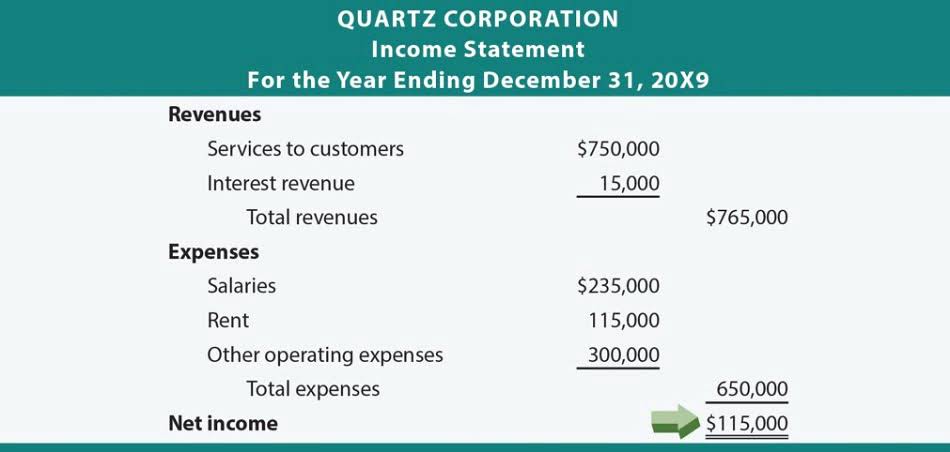
Further, depending on the requirement of the management, these reports can be prepared, – daily, weekly, monthly or yearly. Every job or career requires a certain level of technical expertise and an understanding of the key aspects necessary to be successful. The time required to develop the expertise for a particular job or career varies from several months to much longer. For instance, doctors, in addition to the many years invested in the classroom, invest a significant amount of time providing care to patients under the supervision of more experienced doctors. This helps medical professionals develop the necessary skills to quickly and effectively diagnose and treat the various medical conditions they spent so many years learning about.
Users of Reports
This post explains the difference between financial accounting and management accounting in detail. Financial accounting emphasizes on giving true and a fair view of the financial position of the company to various parties. On the contrary, management accounting aims at providing both qualitative and quantitative financial accounting information to the managers, so as to assist them in decision making and thus maximizing the profit. You will also note in your financial accounting studies that there are governmental and organizational entities that oversee the accounting processes and systems that are used in financial accounting.
- Performance measures such as return on equity, debt to equity, and return on invested capital help management identify key information about borrowed capital, prior to relaying these statistics to outside sources.
- Managerial accounting provides actionable financial reports for all areas of a company, from product development to marketing to customer service and everything in between.
- Company stakeholders use this information to make decisions that affect their relationships with the company—for the benefit of their own financial interests.
- Other reports can include cost of goods manufactured, job order cost sheets, and production reports.
What is the difference between managerial accounting and financial reporting?
- Still, they need certifications, such as getting a CPA (certified public accountant) license to expand job opportunities.
- A degree in accounting qualifies you to work in a number of positions related to accounting and finance.
- If you graduate with an accounting degree, your first job will likely be as a financial accountant.
- If you want to know how much that assembly machine is worth (its value) after two years in your production line, you make use of financial accounting to analyze the situation.
- Whether they are managerial accountants or financial accountants, they spend much of their time keeping the books.
- Both operational budgeting (expenses, estimated future costs, possible income) and capital budgeting (calculating whether your business’s long-term investments are worth the expense) fall into this category.
- Marginal costing (sometimes called cost-volume-profit analysis) is the impact on the cost of a product by adding one additional unit into production.
Managerial accounting is not governed by GAAP, so there is unending flexibility in the types of reports and information gathered. Managerial accountants regularly calculate and manage “what-if” scenarios to help managers make decisions and plan for future business needs. Thus, managerial accounting focuses more on the future, while financial accounting focuses on reporting what has already happened. In addition, managerial accounting uses nonfinancial data, whereas financial accounting relies solely on financial data. Financial accounting information is communicated through reporting, such as the financial statements.

Comparison of Financial and Management Accounting
The level and type of training in accounting are often dependent on which of the myriad options of accounting fields the potential accountant chooses to enter. To familiarize you with some potential opportunities, Describe the Varied Career Paths Open to Individuals with an Accounting Education examines many of these career options. In addition to covering an assortment of possible career opportunities, we address some of the educational and experiential certifications that are available.
No Standards vs. High Standards
People who have been trained in financial accounting have a Certified Public Accountant designation, while those with a Certified Management Accountant designation are trained in managerial accounting. There is a difference in the accounting certifications typically found in each of these areas. People with the Certified Public Accountant designation have been trained in financial accounting, while those with the Certified Management Accountant designation have been trained in managerial accounting. Financial accounting is oriented toward the creation of financial statements, which are distributed both within and outside of a company.

Applied Algebra is designed to help you develop competence in working with functions, the algebra of functions, and using some applied properties of functions. You will start learning about how we can apply different kinds of functions to relevant, real-life examples. From there, the algebra of several families of functions will be explored, including linear, polynomial, exponential, and logistic functions. You will also learn about relevant, applicable mathematical properties of each family of functions, including rate of change, concavity, maximizing/minimizing, and asymptotes.

Finance vs. Economics Degree: What’s the Difference?
- Because managerial accounting deals with the parts rather than the whole, it is much more adept at identifying financial problems and how to fix them.
- But if you commit yourself and put in the hours needed, WGU makes it possible for you to earn a highly respected degree as a busy working adult.
- Though there are many differences between the two, utilizing them can ensure that a company gets accurate financial statements and forecasts for a more productive and profitable future.
- Managers should understand that in order to obtain information quickly, they must accept less precision in the reporting.
- Information like bookkeeping data, industry benchmarks, forecasts, stock market information, and statistics may be relevant for managerial accounting.



